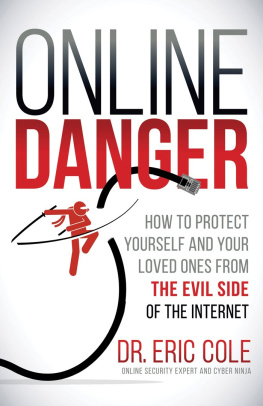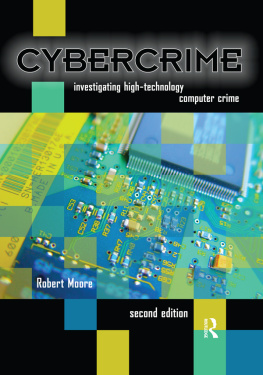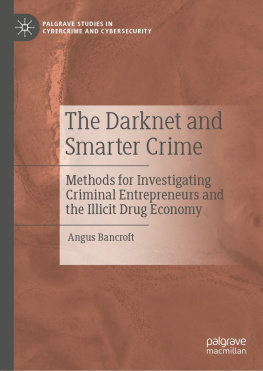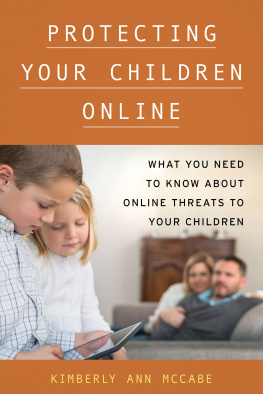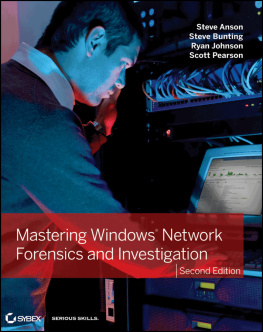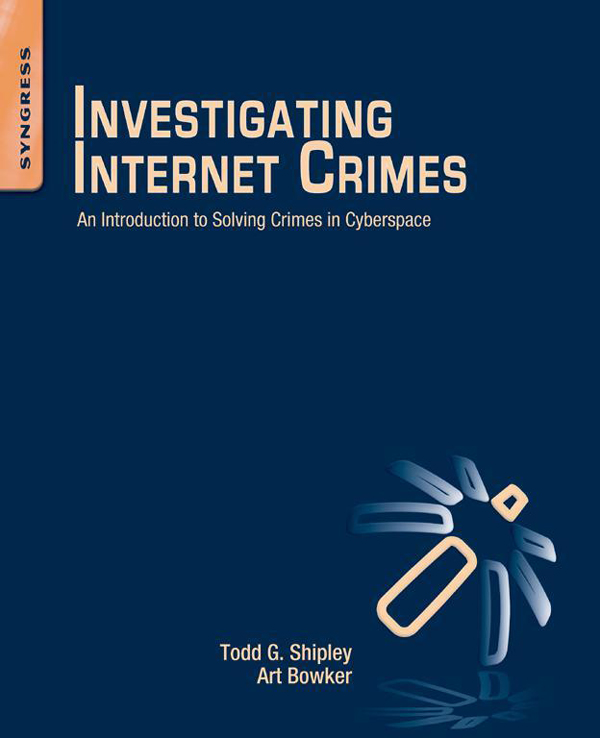Todd Shipley - Investigating Internet Crimes: An Introduction to Solving Crimes in Cyberspace
Here you can read online Todd Shipley - Investigating Internet Crimes: An Introduction to Solving Crimes in Cyberspace full text of the book (entire story) in english for free. Download pdf and epub, get meaning, cover and reviews about this ebook. year: 2013, publisher: Syngress, genre: Home and family. Description of the work, (preface) as well as reviews are available. Best literature library LitArk.com created for fans of good reading and offers a wide selection of genres:
Romance novel
Science fiction
Adventure
Detective
Science
History
Home and family
Prose
Art
Politics
Computer
Non-fiction
Religion
Business
Children
Humor
Choose a favorite category and find really read worthwhile books. Enjoy immersion in the world of imagination, feel the emotions of the characters or learn something new for yourself, make an fascinating discovery.

- Book:Investigating Internet Crimes: An Introduction to Solving Crimes in Cyberspace
- Author:
- Publisher:Syngress
- Genre:
- Year:2013
- Rating:3 / 5
- Favourites:Add to favourites
- Your mark:
Investigating Internet Crimes: An Introduction to Solving Crimes in Cyberspace: summary, description and annotation
We offer to read an annotation, description, summary or preface (depends on what the author of the book "Investigating Internet Crimes: An Introduction to Solving Crimes in Cyberspace" wrote himself). If you haven't found the necessary information about the book — write in the comments, we will try to find it.
Written by experts on the frontlines, Investigating Internet Crimes provides seasoned and new investigators with the background and tools they need to investigate crime occurring in the online world. This invaluable guide provides step-by-step instructions for investigating Internet crimes, including locating, interpreting, understanding, collecting, and documenting online electronic evidence to benefit investigations.
Cybercrime is the fastest growing area of crime as more criminals seek to exploit the speed, convenience and anonymity that the Internet provides to commit a diverse range of criminal activities. Todays online crime includes attacks against computer data and systems, identity theft, distribution of child pornography, penetration of online financial services, using social networks to commit crimes, and the deployment of viruses, botnets, and email scams such as phishing. Symantecs 2012 Norton Cybercrime Report stated that the world spent an estimated $110 billion to combat cybercrime, an average of nearly $200 per victim.
Law enforcement agencies and corporate security officers around the world with the responsibility for enforcing, investigating and prosecuting cybercrime are overwhelmed, not only by the sheer number of crimes being committed but by a lack of adequate training material. This book provides that fundamental knowledge, including how to properly collect and document online evidence, trace IP addresses, and work undercover.
- Provides step-by-step instructions on how to investigate crimes online
- Covers how new software tools can assist in online investigations
- Discusses how to track down, interpret, and understand online electronic evidence to benefit investigations
- Details guidelines for collecting and documenting online evidence that can be presented in court
Todd Shipley: author's other books
Who wrote Investigating Internet Crimes: An Introduction to Solving Crimes in Cyberspace? Find out the surname, the name of the author of the book and a list of all author's works by series.

